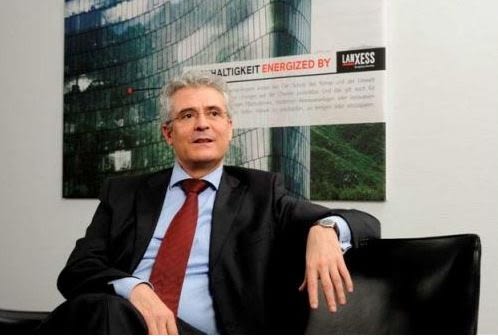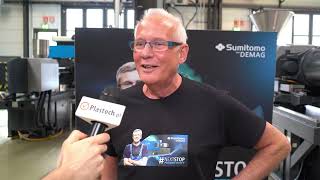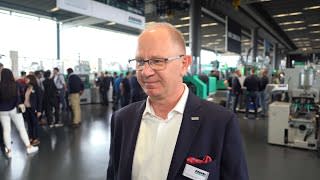 China today is the world’s largest automotive market. The number of vehicles sold grew in 2010 to more than 17.1 million. However, greater mobility goes hand in hand with increased emissions and higher resource consumption. Luis López-Remón, head of the Lanxess Rubber Chemicals business unit, describes solutions for more eco-friendly mobility.
China today is the world’s largest automotive market. The number of vehicles sold grew in 2010 to more than 17.1 million. However, greater mobility goes hand in hand with increased emissions and higher resource consumption. Luis López-Remón, head of the Lanxess Rubber Chemicals business unit, describes solutions for more eco-friendly mobility.Mr. López-Remón, considering the rapid growth of the automotive market, sustainable mobility undoubtedly is one of the greatest technical challenges of our time. What needs to change?
López-Remón: In the future, tires in particular will have to help save fuel to an even greater extent. They will need to be even quieter. And wet grip will also have to be improved. Meeting these increased requirements is no easy task for tire manufacturers. China faces the same challenge, with its widely developed network of roads, where high performance tires are just as necessary as in Europe.
How can rubber chemicals help to master this demanding task?
We have products that have become established over years among rubber and tire manufacturers. But we also react to changes in the market, and I mean worldwide.
In what way?
As one of very few suppliers on the market, we've invested continuously in research and development over the years, which have enabled us to regularly launch new solutions on the market. In addition, we involve our customers in product development at a very early stage and our dedicated technical service team subsequently provides them with global on-site support in the launch phase. The production of vehicle tires is the most important application for Lanxess rubber chemicals.
What is that process like?
We offer new applications resulting from the development of existing products. And our chemists have developed totally new, innovative products and solutions.

Can you give some examples?
The first group includes the new silica additive 9202, for instance, a solution that improves the processability of silica tire mixtures without impairing other properties such as stiffness. Other processing additives do not have this advantage. Another major benefit of silica additive 9202 is that we avoid the use of the heavy metal zinc – a clear gain for the environment.
What other familiar, but now more advanced products offer the same advantages?
Take the hybrid crosslinker Vulcuren, for example, which primarily is used as an anti-reversion agent to stabilize the network in the event of high stress levels. In a new field of application, Vulcuren can make a substantial contribution to cutting rolling resistance in car tires. And we likewise aim here to avoid our customers having to change their formulations, as Vulcuren exhibits excellent compatibility with other components.
The rolling resistance of tires accounts for about one quarter of a car's fuel consumption...
In addition to our familiar products, we have new ones we've developed under the Vulkalink name to further optimize the rolling resistance of state-of-the-art tread mixes. These brand new additives significantly improve the interaction between polymers and the silica filler. These advantages are also of growing importance to tire manufacturers in China, for their own market but also for export. Particularly considering that tire labeling will be mandatory in the EU as of 2012 and likewise is an issue in Asia.



